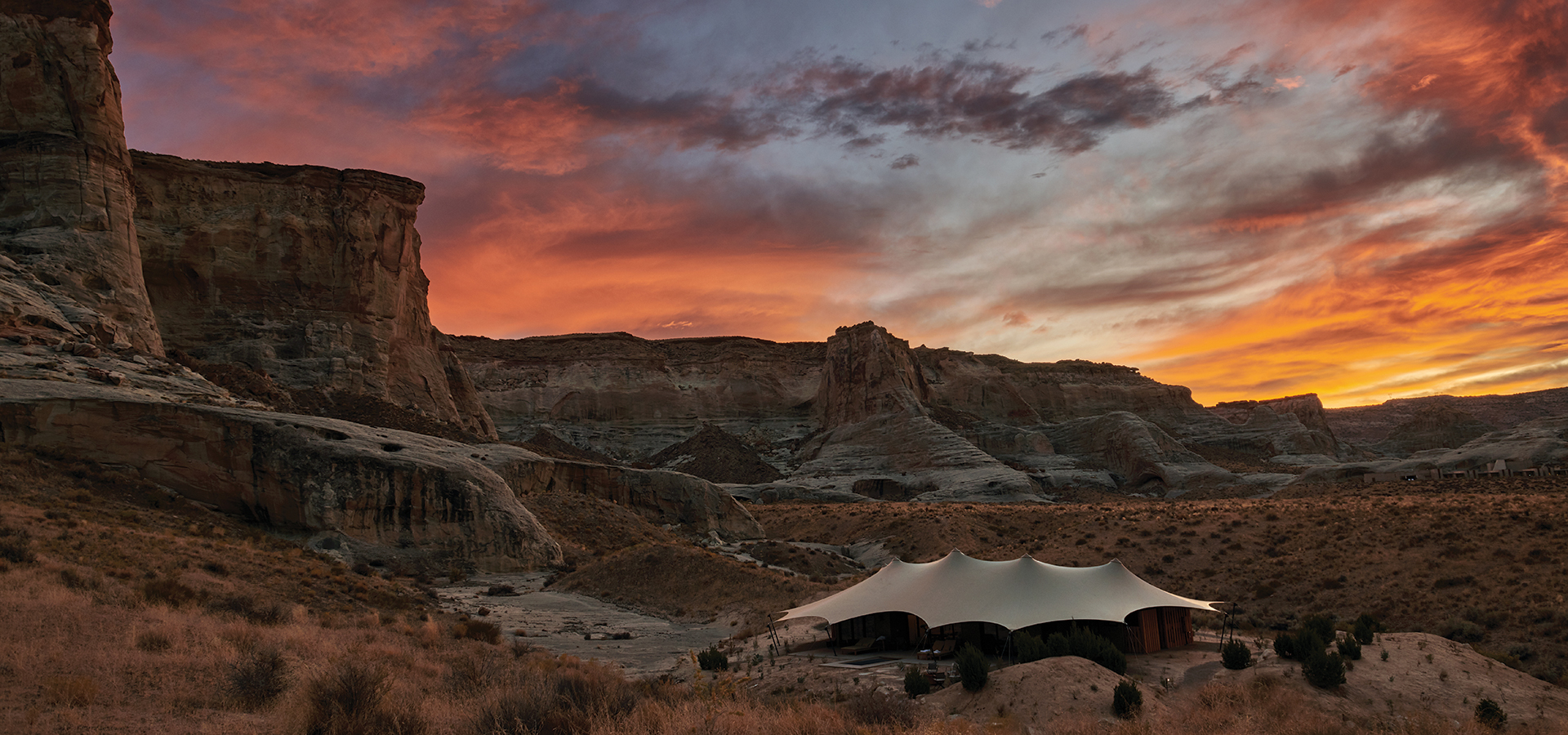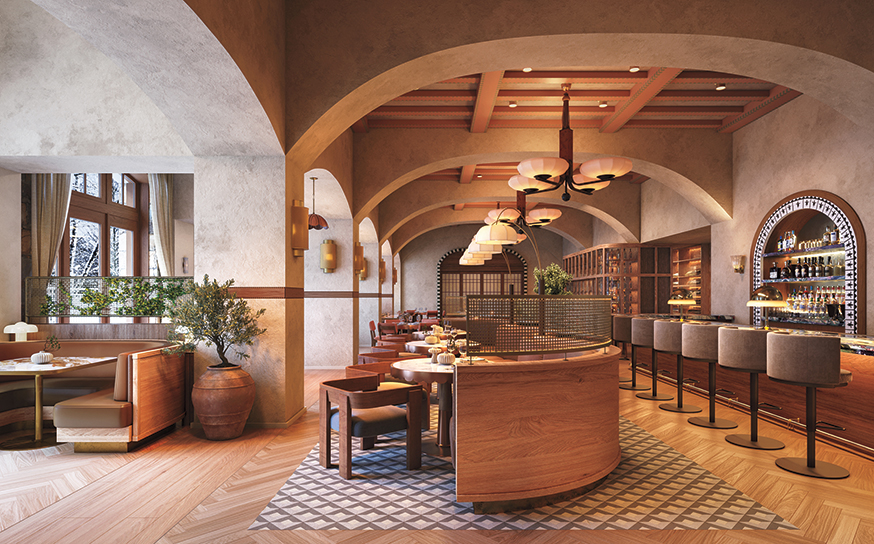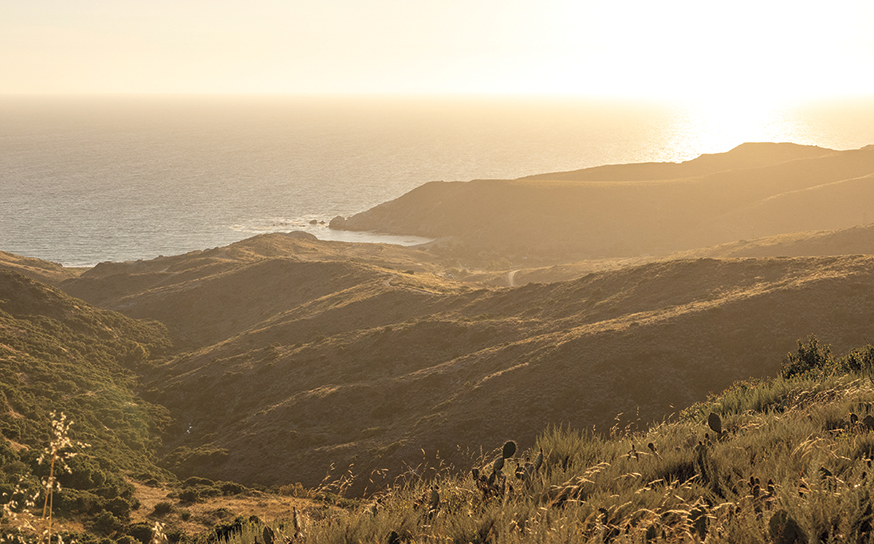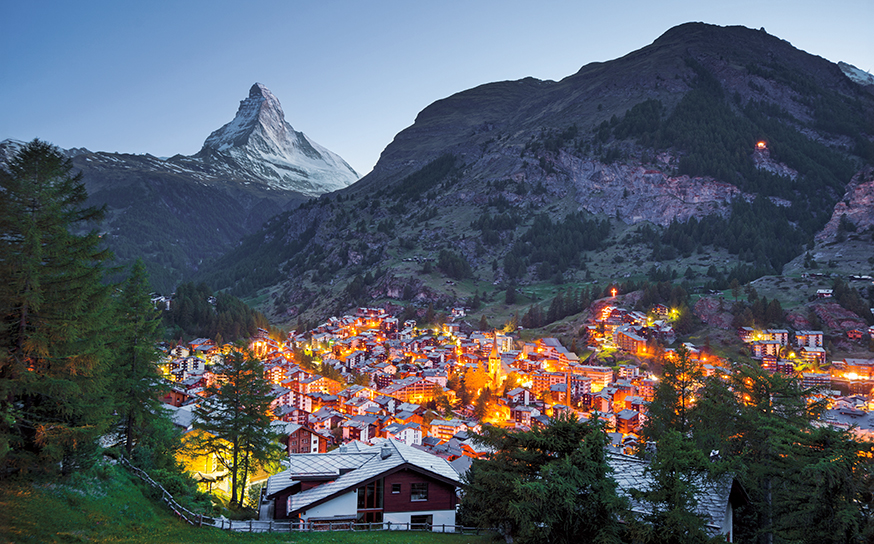A Luxury Southwestern Refuge Debuts a New Enclave, Redefining a Sense of Place with Relaxation, Adventure and Soul-centering
Grounding place.
- CategoryTravel
- Written byJennie Nunn
I’ve always felt a strong pull to the Southwest. Maybe it’s because of a fascination with the Old West; my love for the desert where I spent family holidays and summers during childhood; or the quiet, calming hues in majestic and arid landscapes, mesas and rock formations once captured by the likes of Georgia O’Keeffe and Ansel Adams, whom I admire so much.
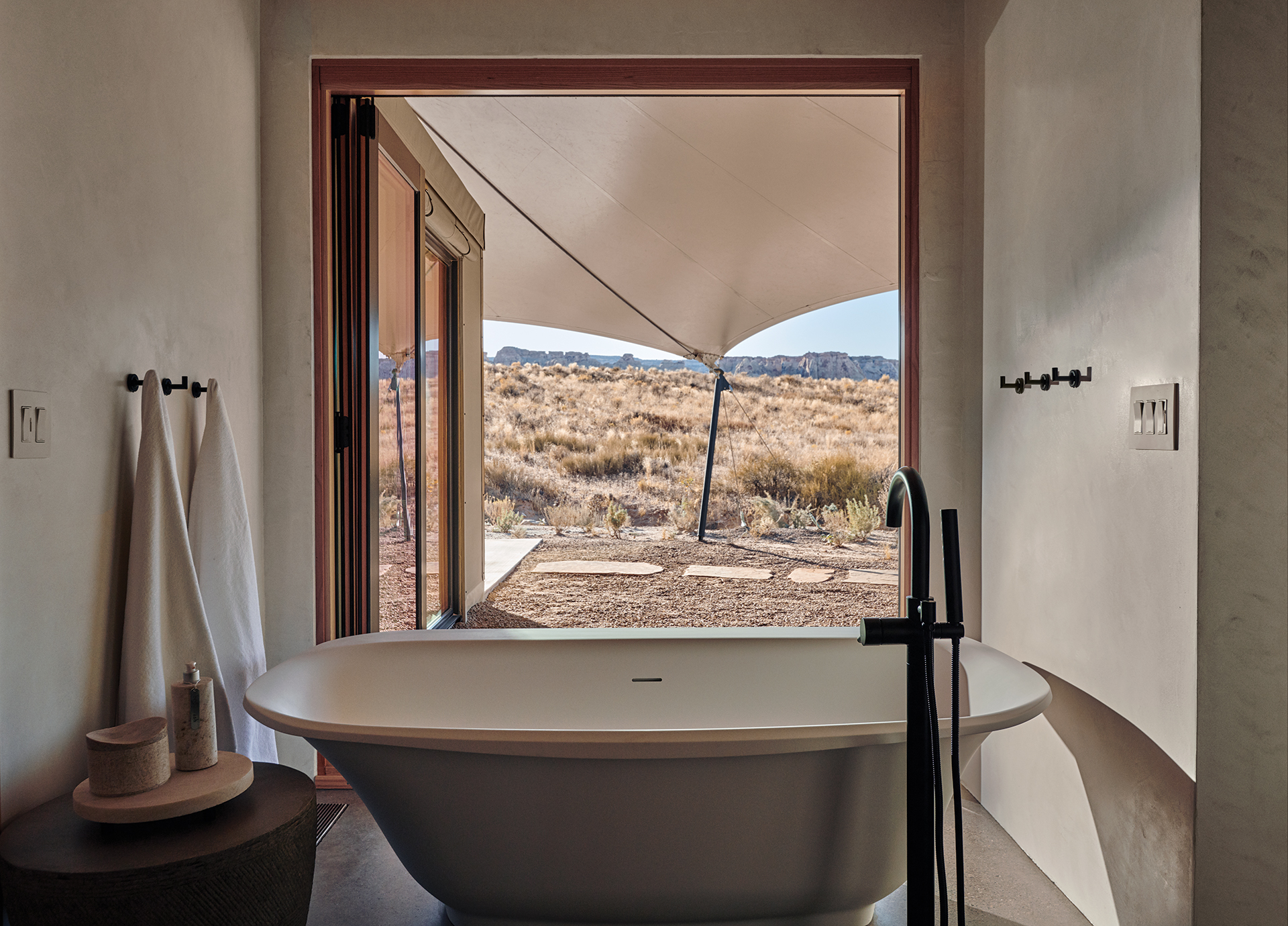
Photo courtesy of Amangiri and Joe Fletcher
So when I learned of the recently opened Camp Sarika by Amangiri—a 600-acre private enclave with 10 luxury tented pavilions replete with private plunge pools and personal golf carts, a restaurant and an outdoor swimming pool, all nestled in the vast, sprawling desert in Southern Utah’s Canyon Point—I knew I had to go.
It’s a crisp, late morning and the sun is casting shimmering gold shadows through the faceted curves of the slot canyons where I’m standing on smooth, rust-hued, clay-like soil. Joseph Secody, our local trail guide on the Three Canyons Tour, is sharing snippets about his life growing up in the Navajo tribe as a world champion hoop dancer. He speaks of the beauty and legends of our surroundings in Rattlesnake Canyon, Owl Canyon and Upper Antelope Canyon.
“More of a traditional story is that these canyons are formed from people in the area,” he says while standing in a sun-filled spot inside the canyon. He’s wearing a black, stiff-brim hat lined with turquoise beads, and holding a Native American wooden double flute.
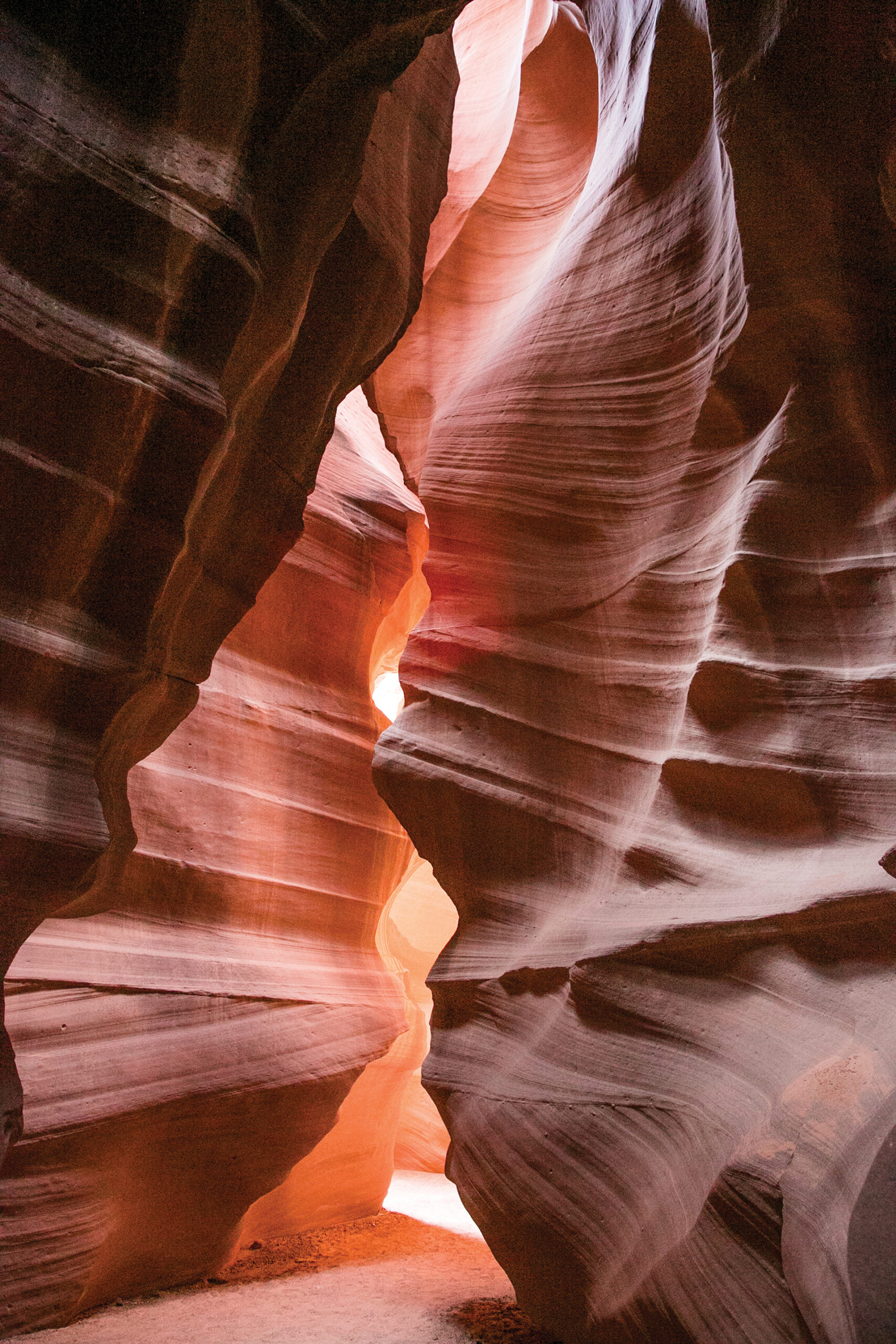
Photo courtesy of Amangiri and Joe Fletcher
“When we get frustrated or stressed out or depressed,” he continues, “we are always taught to take in that deep breath and that negative energy and blow it back out. That wind travels into these rocks, and it will cut the rock into the slot canyon. So all these straight lines throughout the canyon walls are people’s stories of what they went through.”
I look up at the massive, striated walls into a small opening that made way for the bright blue sky with only a few scattered clouds. “Same thing when we play these flutes; we take in that negative energy, and we blow it back through the flute—turning that negative into something else beautiful,” Joseph says.
As he plays, I’m entranced in the hypnotic melody and scan the beauty of where I’m standing. “While I’m playing this song,” he had told us, “I’d like for you to meditate or visualize whatever problems you’re having in your lives—whether we’ve lost someone in our family or somebody that we love and it’s hard to deal with, or we’re having problems with our jobs or school or family. So visualize a way to turn that negative into something beautiful.”
As we continue to meander through the narrow canyons sculpted over centuries by water and time, I can feel the history here. My mind swirls with internal questions of what went on inside these canyons.
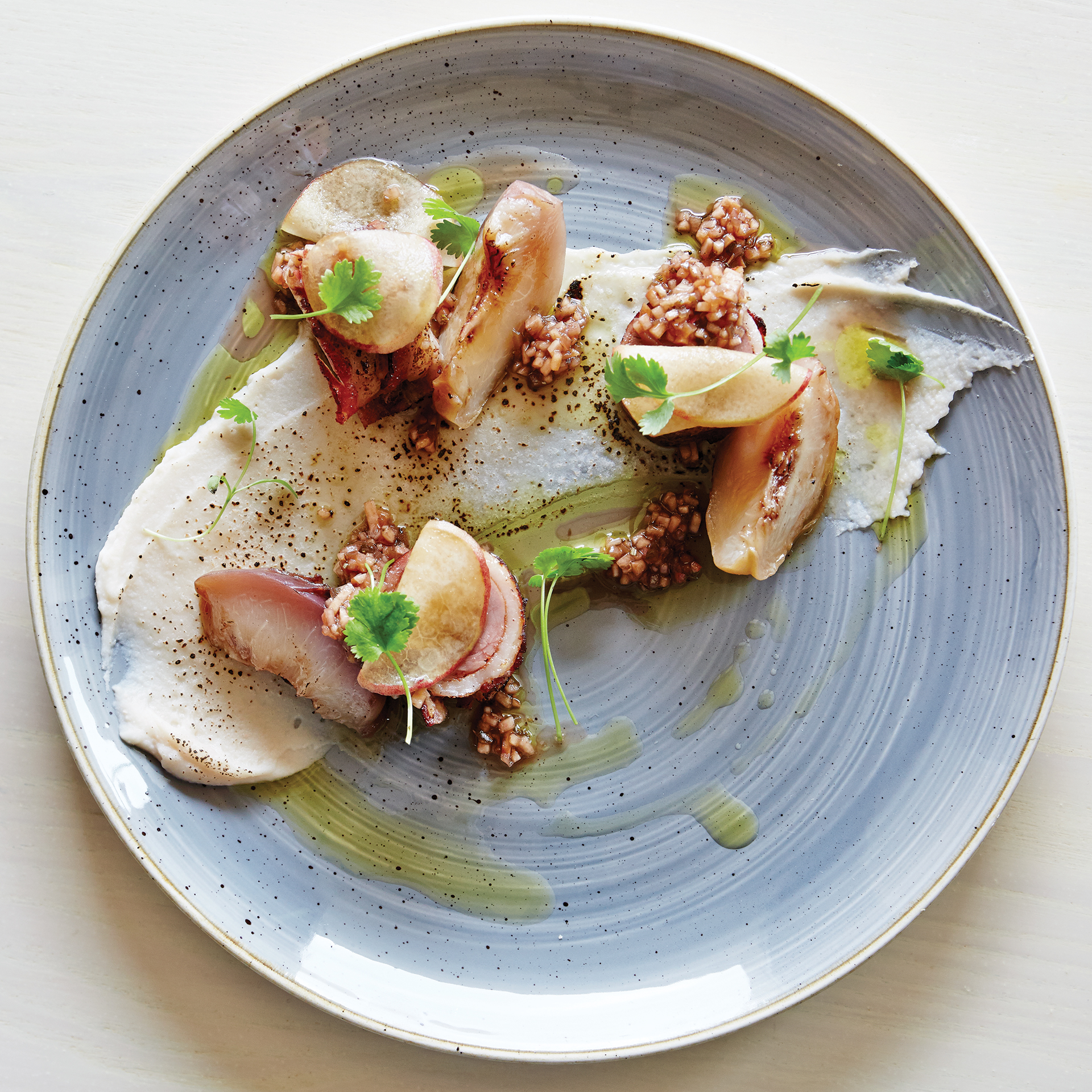
Photo courtesy of Amangiri and Joe Fletcher
Back at camp, there’s an inner calm and sense of peace as I contemplate how to design the rest of the day and my remaining time here. The possibilities are seemingly endless: a poolside-with-a-book lounge session on a chaise enveloped by massive rock formations; a spa treatment or a Yoga on the Rocks class; or evening fireside Navajo storytelling.
Excursions include national parks (Grand Canyon, Bryce Canyon and Zion parks and Lake Powell are all accessible via land or air); a guided horseback ride or hike through 12 miles of nearby trails; or a daring adventure one of several via ferratas, comprised of a series of routes with cables and ladder rungs affixed to various rock faces.
There is also the option to just do nothing, or take advantage of downtime in my one-bedroom pavilion topped with an ultra-modern, futuristic tent and membrane manufactured in South Africa.
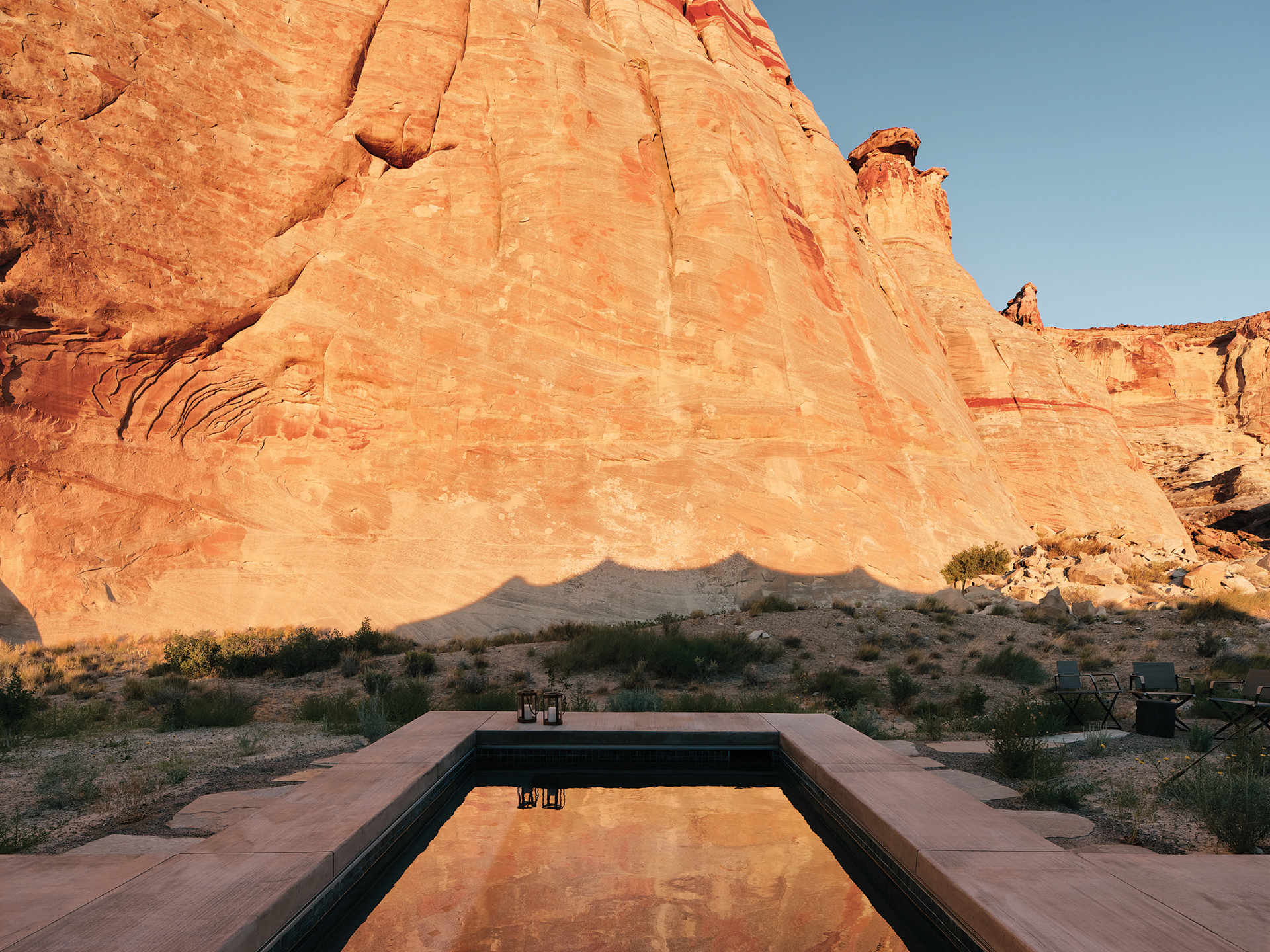
“Camp Sarika is a celebration of the back-to-nature experience and otherworldly landscape surrounding the camp,” says Graeme Labe, principal and managing director of Luxury Frontiers. “Our concept was driven by contextual design, enfolding the architecture of the camp effortlessly into the landscape. The tented pavilions bow toward monumental sandstone formations, welcoming guests inside with the soft intimacy of a natural canvas tent. In keeping with the design ethos of Amangiri, all tents are also comfortably spacious, with clean lines and natural color schemes. In addition, the refined camp’s details reflect the local region through textures and natural materials inspired by the undulating surfaces of the desert.”
Over the next few days, I take it upon myself to try nearly every class and experience possible. I’ve made new friends from all parts of the country, embraced the quiet and stillness of the camp’s setting, challenged myself to push new limits, and surrendered to leaving the responsibilities of busy life behind.
On the last morning, I stare through the telescope on my private patio to take in the beauty of this place one final time. As I move the telescope in different directions to examine the landscape and adjust the lens for clarity, I flash back to the sounds of the Navajo double flute in the slot canyon and the simple practice of letting go. Not only do I feel grounded, but I have a newfound gratitude for the desert, this destination and for where I am in this exact moment, right now.






